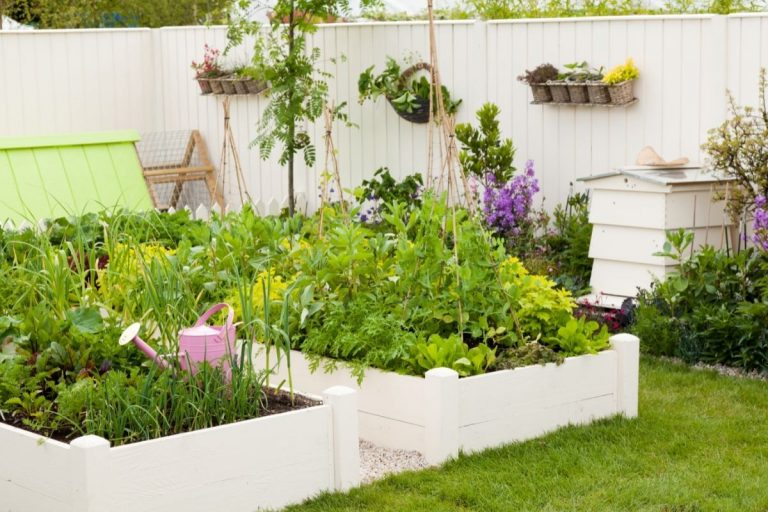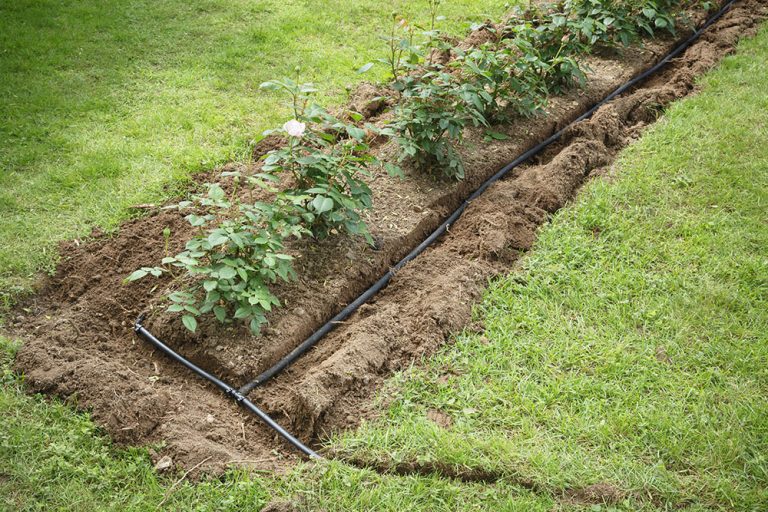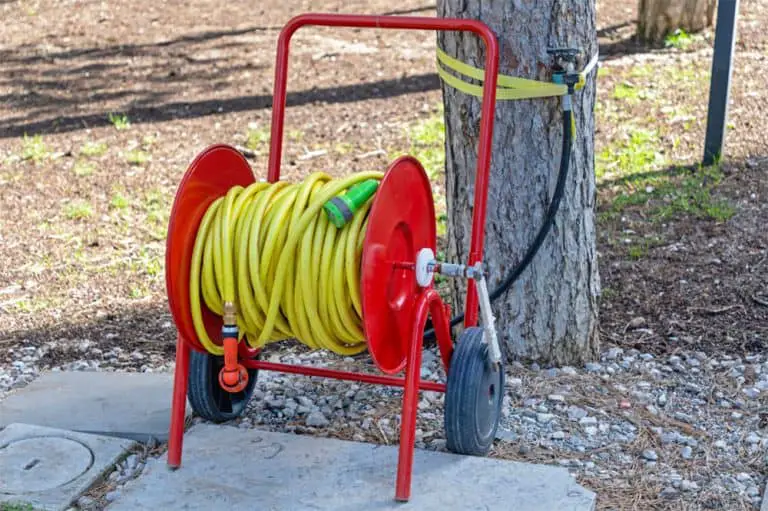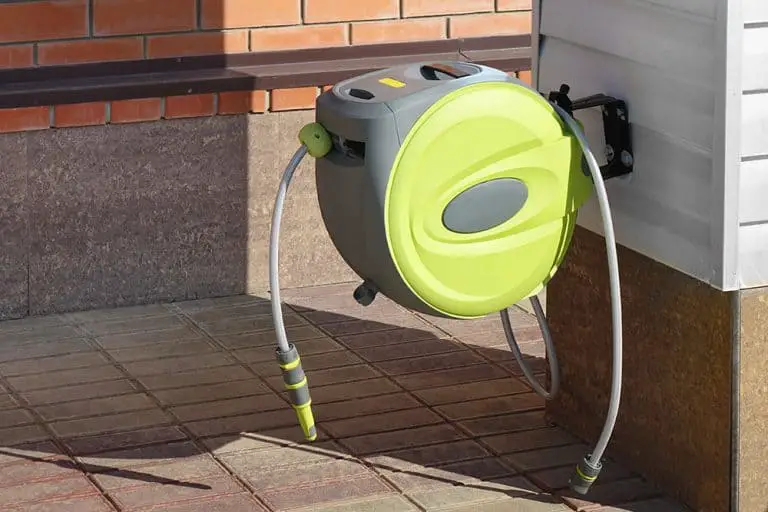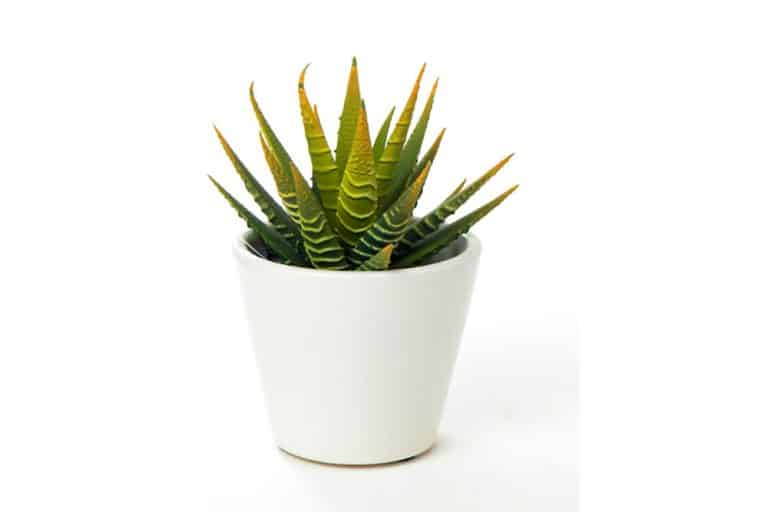11 Best Hydroponic Nutrients – Gardeners Recommendation
Are you looking for the best hydroponic nutrients to help your plants grow better?
Hydroponics or deep water culture (DWC) is a method of growing plants in water and there are different ways to build a hydroponic garden.
Whether you already have an established hydroponic garden or you are just starting out, you can find everything that you need to know about finding the best hydroponic nutrients in this article.
….
The 11 Best Hydroponic Nutrients
- Best Overall: General Hydroponics Fertilizer Set
- Bust Budget-Friendly: Midas Products Calcium Magnesium and Nitrogen for Plants
- Best Premium: Cronk Grow Hydroponic Nutrients Big Bud Kit
- Best Organic: Botanicare Enhancing Base Nutrient Vegetative Formula
- Best Liquid: Advanced Nutrients Bloom, Micro & Grow
- Best Powder: General Hydroponics Maxigro and Maxibloom Fertilizer
- Best All-In-One: AeroGarden Liquid Nutrients
- Best Starter Kit: Earth Juice Hydroponic & Indoor Gardening Starter Kit Plant Fertilizer and Nutrients
- Best Variety Set: General Hydroponics General Organics Go Box
- Best 3-Step Set: FoxFarm Liquid Nutrient Trio
- Best 2-Step Set: Humboldts Secret Base A & B Bundle
DISCLOSURE
Some of the links on here are affiliate links and I may earn if you click on them, AT NO EXTRA cost to you. Hope you find the information here useful! Thanks.
Related Articles:
- 7 Best Hydroponic Nutrients for Vegetables
- 11 Best Cordless Pruners
- Hydroponic Basil – A Guide to Keeping It Fresh and Healthy
- Top 11 Best Hedge Shears
What Are Hydroponic Nutrients and Why Do You Need Them?
Like all living things, plants need nutrients in order to grow and be healthy.
Plants usually get the nutrients that they need from the soil and gardeners often supplement these nutrients with fertilizers to help them grow better.
When you grow plants in water, there are very few nutrients in the water and as a result, they are not able to get all the nutrients that they need.
Hydroponic nutrients are nutrients that are added into the water that your plants are growing in so they can get the right nutrients that they need to grow.
You need to add in the right mix of hydroponic nutrients so that your plants can grow healthily.
Whether you are looking for the best hydroponic system for vegetables or the best hydroponic system for beginners, you will need to look into finding the best hydroponic fertilizer for growing your plants.
5 Things to Look For in Good Hydroponic Nutrients
- N-P-K Ratio
When you start looking for the best nutrients for hydroponics, you will come across the N-P-K ratio and it’s important that you are able to understand what it means so that you can choose the ratio that is best for the type of plants that you are growing.
N-P-K stands for nitrogen (N), phosphorus (P) and potassium (K) and is 3 of the most important macronutrients that are needed by plants to grow.
You will often see the N-P-K ratio represented by numbers (like 7-9-5) which are referring to the percentage of each nutrient in the mix.
Plants at the flowering stage will benefit from more phosphorus compared to nitrogen so you should look for N-P-K ratios with lower nitrogen and higher phosphorous like a 5-15-14.
- Micronutrients
Apart from the main macronutrients, you will want to check what micronutrients are included in the hydroponic nutrients.
Different types of plants and plants at different growth stages will benefit from different micronutrients and you should look for the appropriate ones for your specific plant.
For example, hydroponic strawberries grow best when they are given nutrients that contain cobalt, copper, chlorine, and manganese.
- Liquid/Powder
The best hydroponic nutrients are available in both liquid and powder forms and you will need to decide which is the best for you and your plants.
Liquid hydroponic nutrients are easier to mix and use as they just need to be diluted. Since they are already liquid, you won’t have to worry about whether they will dissolve or not.
However, since they are in liquid form, they tend to be in larger containers and are heavier.
Dry or powder hydroponic nutrients are in powder form and generally need to be dissolved in water before you add them to your plants.
Some people prefer powder hydroponic nutrients as they take up less room and are easier to store.
- Organic
You can get the best hydro nutrients from synthetic sources or organic sources. It is usually better, in general, to use the best organic hydroponic nutrients especially if you are growing hydroponic vegetables.
However, synthetic hydroponic nutrients are not harmful and can be used safely.
- Additives
Apart from macronutrients and micronutrients, your hydroponically grown plants can also benefit from other additives such as Mycorrhizae, enzymes, vitamin B1, and root stimulants.
The Top 11 Hydroponic Nutrients
1.General Hydroponics Fertilizer Set
The General Hydroponics Flora Grow, Bloom, Micro Combo Fertilizer Set comes in a set of 3 different types of nutrients that you can use depending on what your plant needs.
Here are the different nutrients and what they are for:
- FloraGro – strong roots & structure, foliage growth
- FloraMicro – foundation, provides nitrogen, potassium, calcium & trace elements
- FloraBloom – flower & fruit development
Type: Liquid hydroponic nutrients
Pros
- Set with all nutrients
- Can adjust specific nutrients based on need
Cons
- A bit hard to pour small quantities
2.Midas Products Calcium Magnesium and Nitrogen for Plants
If you are looking for an all-in-one hydroponic nutrient for your plants, check out the Midas Products Calcium Magnesium and Nitrogen for Plants.
It is easy to use and produces healthier and greener plants. This product is suitable to be used at all stages of plant growth.
Midas Hydro Products also has other products that are helpful for growing plants hydroponically.
Type: Liquid hydroponic nutrients
Pros
- All-in-one with all nutrients
- Great results
Cons
- Mix might not be suitable for all plants
3.Cronk Grow Hydroponic Nutrients Big Bud Kit
Cronk Grow Hydroponic Nutrients provide the best hydroponic nutrients that your plants need for ultra-rich harvests.
This kit of hydroponic nutrients contains 5 different types of hydroponic plant nutrients that you can choose to use based on the needs of your plants:
- CGN Grow – for nutrient and structural growth
- CGN Micro – helps overall growth
- CGN Bloom – boosts flowering and fruiting
- CGN Bud Booster – creates larger and better-formed buds
- CGN CalMag – prevents blossom end rot and tip burn
Type: Liquid hydroponic nutrients
Pros
- Large variety of nutrients
- Great results
Cons
- A bit expensive for the whole set
4.Botanicare Enhancing Base Nutrient Vegetative Formula
This one-part Botanicare Enhancing Base Nutrient Vegetative Formula can be used at all stages of plant growth to support your plants. The nutrients are derived from natural sources such as fish meal, seabird guano, and kelp.
Add a supplement that contains calcium and magnesium to increase the effectiveness of these liquid nutrients.
Botanicare also has other nutrients and supplements that you can check out to improve the health and growth of your hydroponic plants.
Type: Liquid hydroponic nutrients
Pros
- All-in-one with all nutrients
Cons
- Mix might not be suitable for all plants
5.Advanced Nutrients Bloom, Micro & Grow
With the Advanced Nutrients Bloom, Micro & Grow, you don’t have to give your plants different nutrients at different times. You can just use all 3 nutrients throughout the plant growth cycle and your plants will be healthy.
One of the advantages of using this set of hydroponic nutrients is that you won’t have to check the pH levels prior to using them as you do with most other hydroponic nutrients.
Type: Liquid hydroponic nutrients
Pros
- Easy to use
- Great results
- No need to check pH
Cons
- Nitrogen levels might get high during the flowering stage
6.General Hydroponics Maxigro and Maxibloom Fertilizer
The General Hydroponics Maxigro and Maxibloom Fertilizer contain two different types of the best dry hydroponic nutrients that can support growth in your plant at different stages of plant growth.
Here are the 2 types of nutrients and how they will help your plants:
- MaxiGro – encourages the growth of seedlings and through the vegetative growth stage
- MaxiBloom – promotes flowering and fruiting
Type: Dry powder hydroponic nutrients
Pros
- Set with all nutrients
- Great results
Cons
- MaxiBloom is a bit hard to dissolve
7.AeroGarden Liquid Nutrients
This AeroGarden Liquid Nutrients is an all in one hydroponic nutrient for your plants.
You won’t need to worry about mixing different quantities of nutrients to get the right combination as they have already been combined for you.
This is the best plant food for hydroponics and is suitable to be used for seedlings, vegetative growth, as well as flowering plants.
Type: Liquid hydroponic nutrients
Pros
- All-in-one with all nutrients
Cons
- Mix might not be suitable for all plants
- Spills easily
8.Earth Juice Hydroponic & Indoor Gardening Starter Kit Plant Fertilizer and Nutrients
The Earth Juice Hydroponic & Indoor Gardening Starter Kit Plant Fertilizer and Nutrients is a natural-based nutrient system that can provide the best hydroponic plant nutrients.
This kit contains 3 different types of nutrients that meet different needs of your plants:
- Earth Juice Grow – robust stem and leaf growth
- Earth Juice Bloom – encourages flower, fruit, and vegetable development
- Earth Juice Xatalyst – enhances compact branching and fruiting sites
Type: Liquid hydroponic nutrients
Pros
- Set with all nutrients
- Great results
Cons
- Smell might be a bit strong
- Earth Juice Grow is very thick and hard to pour out
9.General Hydroponics General Organics Go Box
This General Hydroponics General Organics Go Box is a great starter kit for people looking to explore additional nutrients for their hydroponic plants.
This box contains 8 different types of nutrients:
- BioThrive Gro – essential nutrients for roots, stems, and foliage
- BioThriveBloom – essential nutrients for flowers and fruiting
- CAMG+ – provides natural source calcium and magnesium for plant development
- BioRoot – recommended for cuttings and transplants
- BioWeed – nutrients from seaweed to boost overall plant growth
- BioBud – use during flowering stage
- BioMarine – squid based nutrients for overall plant health
- Diamond Black – increases micronutrient availability
Type: Liquid hydroponic nutrients
Pros
- Large variety of nutrients
- Organic nutrients
Cons
- Might be overwhelming with so many choices
10.FoxFarm Liquid Nutrient Trio
This FoxFarm Liquid Nutrient Trio can be used at all stages of plant growth and contains all the best nutrients for dwc.
The Fox Farm hydroponic nutrients trio consists of:
- Grow Big – use at the beginning to promote the growth of leaves and stems
- Big Bloom – use in all growth stages to heal the roots and for nutrient absorption
- Tiger Bloom – use at the first sign of flowering for healthy flowers and fruits
Type: Liquid hydroponic nutrients
Pros
- Set with all nutrients
- Can adjust specific nutrients based on need
Cons
- You may run out of Big Bloom before the others
11.Humboldts Secret Base A & B Bundle
To get the best results, just use both types of the hydroponic nutrients that come in the Humboldts Secret Base A & B Bundle in equal quantities throughout the different parts of the plant growth cycle and it will provide support for both leaf and flower growth.
Humboldts is a brand that has a lot of great reviews and produces great results for a lot of gardeners.
Use it together with Humboldts Secret Golden Tree for best results.
Type: Liquid hydroponic nutrients
Pros
- Easy to use
- Great results
Cons
- A bit expensive
- Needs additional nutrients
The Different Types of Hydroponic Nutrients
There are two main types of hydroponic nutrients: macronutrients and micronutrients. All plants need a mix of macronutrients and micronutrients in order to grow well.
Plants need a lot of macronutrients and smaller amounts of micronutrients, often in different combinations depending on the type of plant that you have.
Since your hydroponic plants are not able to get nutrients from the soil, you will need to make sure that you are adding the right amounts of nutrients into the water that your plants are growing in.
Different plants need different types and quantities of hydroponic nutrients. Hydroponic nutrients for peppers can look very different from hydroponic nutrients for kale.
Here is a list of the macronutrients that plants need along with their element symbol as this is often used:
- Carbon (C)
- Hydrogen (H)
- Oxygen (O)
- Nitrogen (N)
- Phosphorus (P)
- Potassium (K)
- Sulfur (S)
- Calcium (Ca)
- Magnesium (Mg)
Plants are generally able to get carbon, hydrogen, and oxygen from the air and water and these do not need to be added to the growing medium.
Out of the remaining macronutrients, nitrogen, phosphorus, and potassium are often the main ones that need to be given to your plants in order to help them grow well.
Here are some of the micronutrients that are often added to hydroponic plants to help them grow:
- Boron (B)
- Chlorine (Cl)
- Copper (Cu)
- Iron (Fe)
- Manganese (Mn)
- Nickel (Ni)
- Zinc (Zn)
Different micronutrients are beneficial for different plants and at different stages of growth.
5 Benefits of Using Hydroponic Nutrients
- Healthy Plants
The biggest benefit of using hydroponic nutrients is that you will have healthy plants.
By providing your plants with the nutrients that they need, you will be providing the best hydroponic medium for them and they will be healthy and grow well.
If you are on a budget, even cheap hydroponic nutrients can help meet the nutrient needs for your hydroponic plants.
- Control Over Nutrients
Since you are choosing the nutrients to add to the water your plants are growing in, you have full control over the nutrients and you can ensure that they are receiving the best nutrients for deep water culture in the right quantities.
Some people even choose to make homemade hydroponic nutrients so that they have even more control over what goes into their plants.
- Easy To Use
Hydroponic nutrients are very easy to use.
You generally just need to dilute or dissolve them in water and you can add them into the water reservoirs. Hydroponic nutrients will also come with instructions that will tell you how to mix hydroponic nutrients in the right ratios and quantities.
- Fewer Chemicals
When you use hydroponic nutrients to help your plants grow, you will not be relying on chemical fertilizers that are often used when plants are grown in soil.
You will be able to use natural or organic nutrients that can meet all the needs of your plants.
If you are growing vegetables, the best hydroponic nutrients for vegetables are the ones that are more organic or natural since you will be eating the vegetables.
- Faster Growth
By using hydroponic nutrients, your plants will grow faster and you will have bigger and mature plants in a short amount of time.
This is particularly helpful if you are growing vegetables because you will be able to harvest them faster.
Conclusion
With all the information in this article, you are going to be able to find the best hydroponic nutrients for your plants that will ensure they grow well and are healthy.
Good luck with growing your hydroponic plants!












